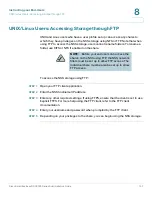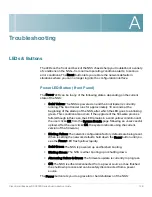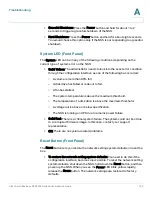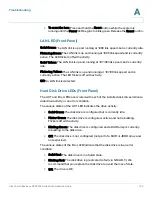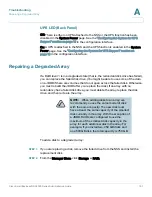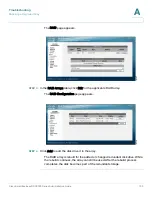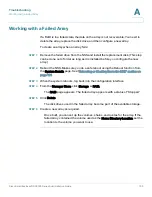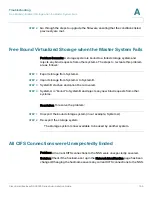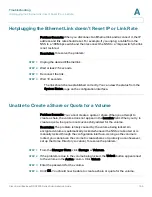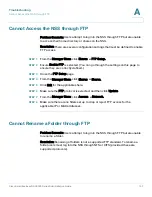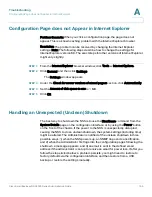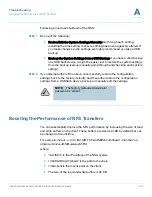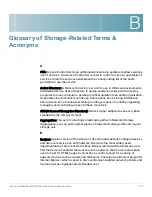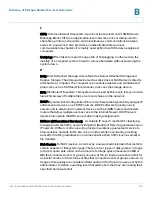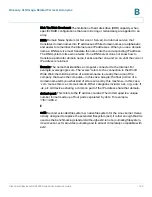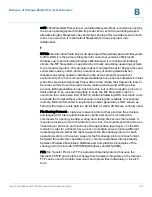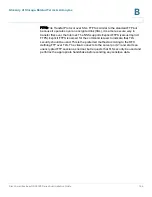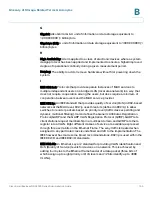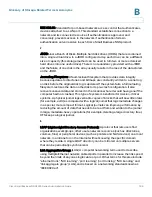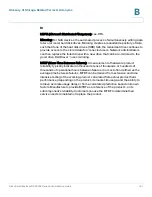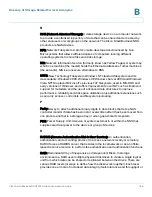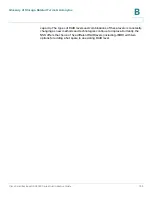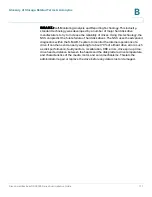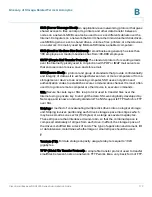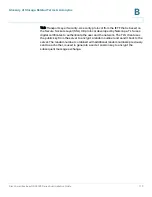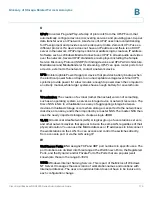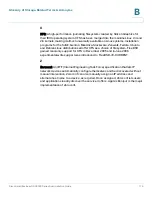
Glossary of Storage-Related Terms & Acronyms
Cisco Small Business NSS2000 Series Administration Guide
161
B
C
CIFS: Common Internet Filesystem. A protocol that evolved out of SMB (Server
Message Block). CIFS is an application-level network protocol mainly used to
share files, printers, serial ports, and miscellaneous communications between
nodes on a network. It also provides an authenticated Inter-process
communication mechanism. It is mainly used by Microsoft Windows-equipped
computers.
Coldplug: Often taken to mean the opposite of hotplugging. In other words, the
inability of a computer system to add or remove hardware without powering the
system down.
D
DAS: Direct Attached Storage. Also referred as Server Attached Storage and
Captive Storage. The storage device (such as disk drive or RAID array) is directly
attached to a computer. The computer uses various adapters and standardized
protocols, such as SCSI and Fibre Channel, to access the storage device.
DFS: Distributed Filesystem. This system, developed by Microsoft, lets you build a
hierarchical view of multiple file servers and shares on the network.
DHCP: Dynamic Host Configuration Protocol. Software that dynamically assigns IP
addresses to devices on a TCP/IP network. DHCP software typically runs in
servers and is also found in network devices such as ISDN routers and modem
routers that allow multiple users access to the Internet. Newer DHCP servers
dynamically update the DNS servers after making assignments.
DiffServ (Differentiated Services): A scalable IP Layer 3 method for classifying,
managing network traffic, and providing QoS (Quality of Service) guarantees on an
IP network. DiffServ is often used to provide low-latency, guaranteed service to
time-sensitive network traffic like voice or video while concurrently providing
best-effort traffic guarantees to non-time sensitive Web traffic (such as email) or
file transfers.
Disk Quotas: For NAS devices, a limit set by a network administrator that restricts
certain aspects of filesystem usage. There are four types of disk quotas: 1) Usage
(or block) quota sets a limit on the amount of storage space (measured in MB or
GB) that connected users or groups can use, 2) File (or inode) quota sets a limit for
a specific number of directories or files that connected users or groups can use, 3)
Usage or File quotas are considered Hard quotas, 4) Soft quota is a way, set by the
administrator, to define a warning level that alerts users that they are nearing their
specified hard quota limit.

